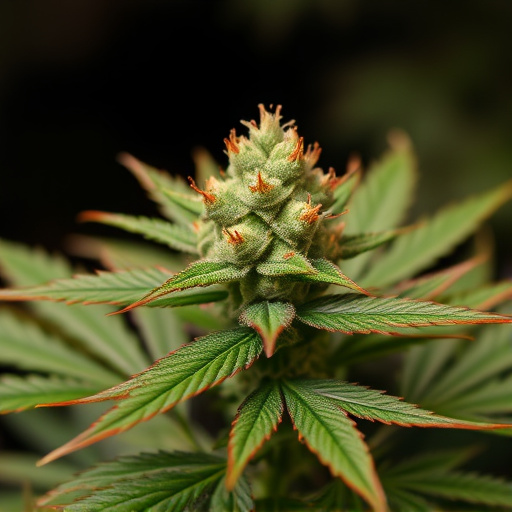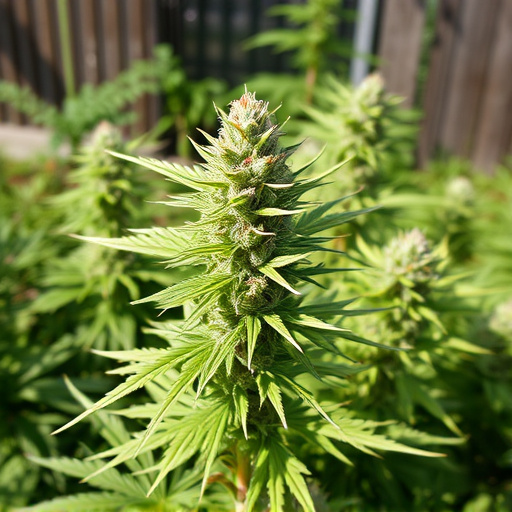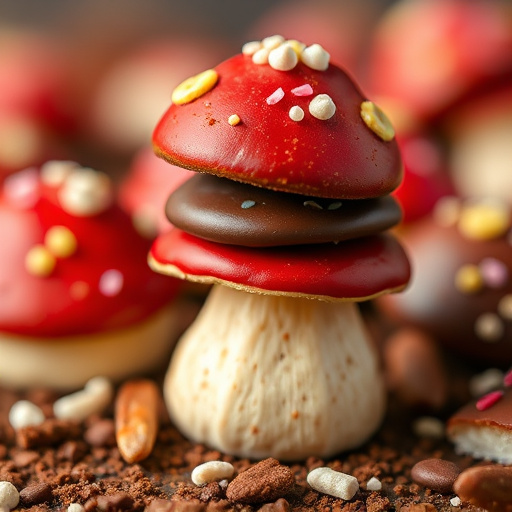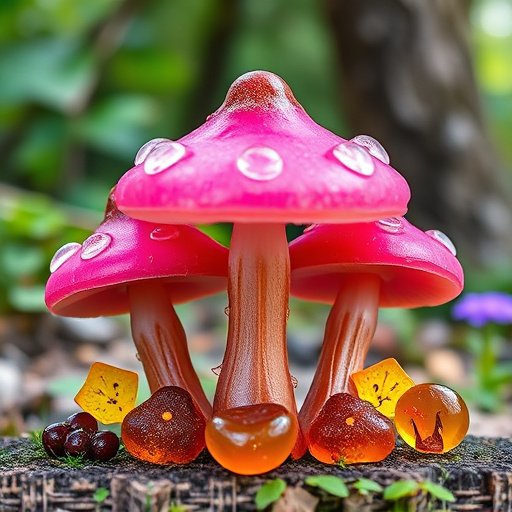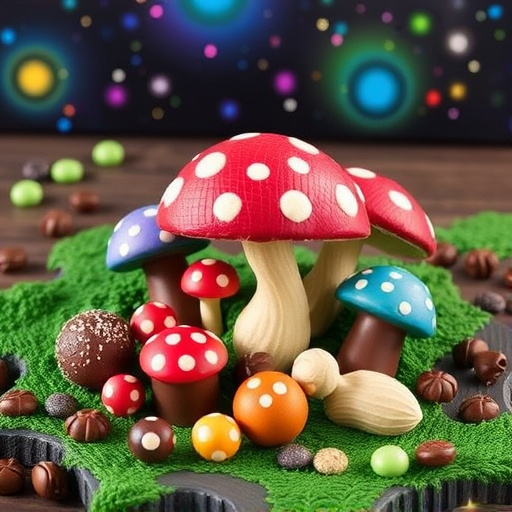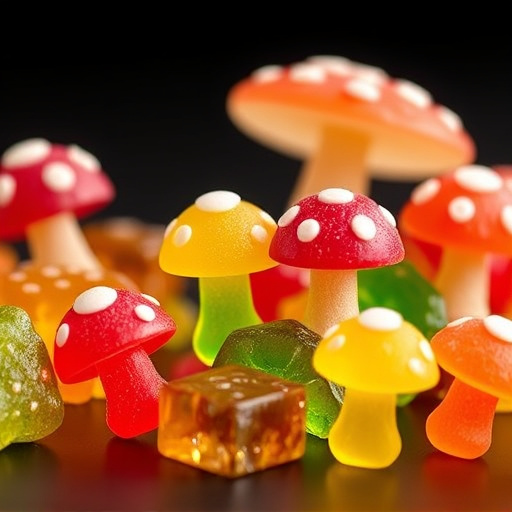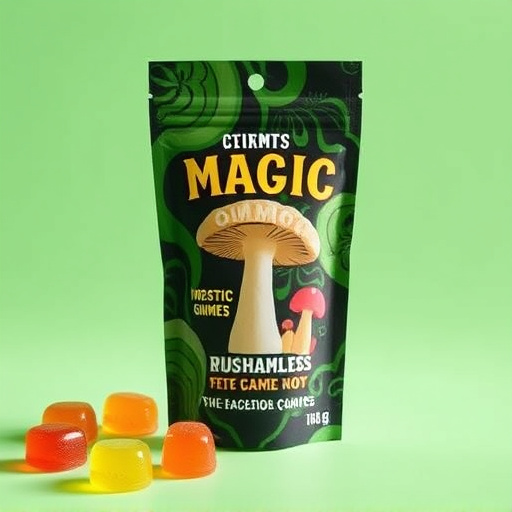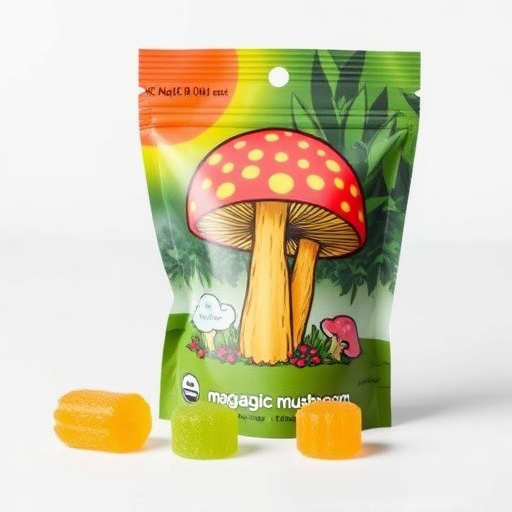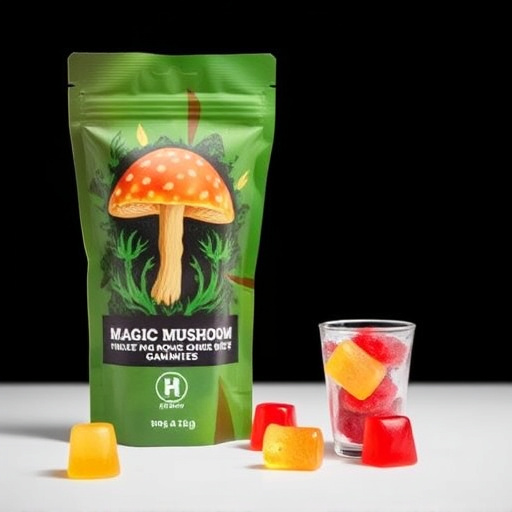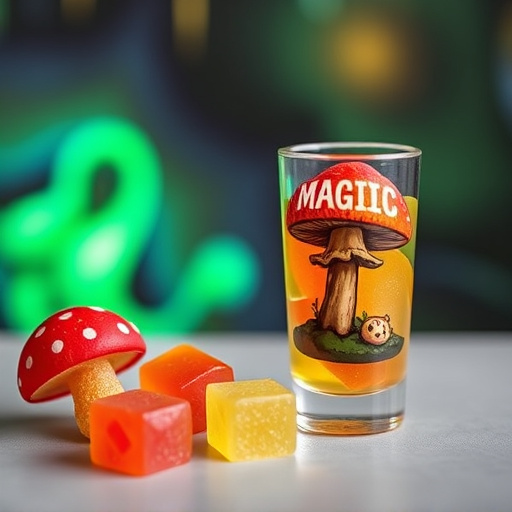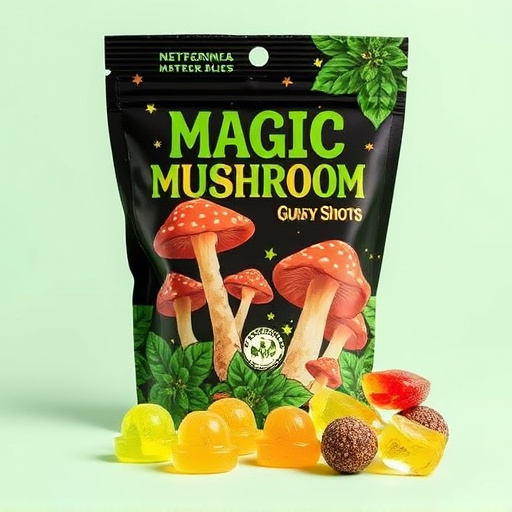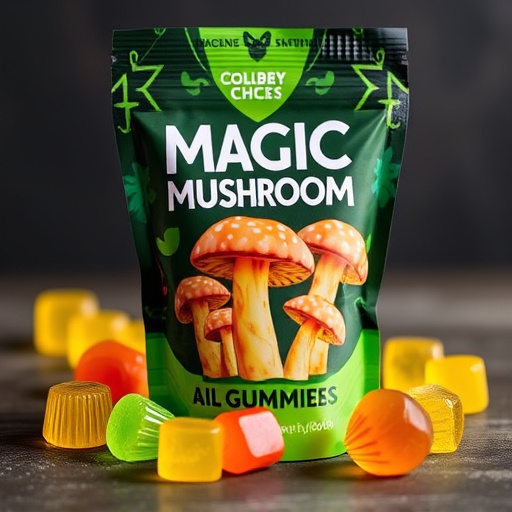Magic Mushroom Gummies represent a modern, controlled way to experience psilocybin through chewable, dosed gummies with potential therapeutic benefits. Their effects, including altered perceptions and heightened creativity, mimic traditional magic mushrooms due to psilocybin's interaction with brain serotonin receptors. The placebo effect plays a significant role in these experiences, as users' beliefs can influence their brain chemistry and sensory perception. User reviews highlight both positive outcomes like stress relief and increased well-being, and potential drawbacks such as anxiety or paranoia. Approaching Magic Mushroom Gummies requires caution, understanding the placebo effect, and recognizing individual reactions.
“Uncover the world of Magic Mushroom Gummies—a novel approach to psychedelic experiences. This article delves into the rising trend of edible gummies infused with psilocybin, a compound known for its magical effects. We explore the science behind these treats, focusing on the placebo effect and how it shapes user perceptions.
From tranquilizing anxiety to fostering creativity, users share their real-life tales. Discover the potential benefits, common side effects, and the powerful impact of Magic Mushroom Gummies, considering the role of the placebo effect in shaping individual experiences.”
- What are Magic Mushroom Gummies and How Do They Work?
- Exploring the Placebo Effect and Its Impact on Perception
- User Reviews: Benefits, Side Effects, and Real-Life Experiences
What are Magic Mushroom Gummies and How Do They Work?
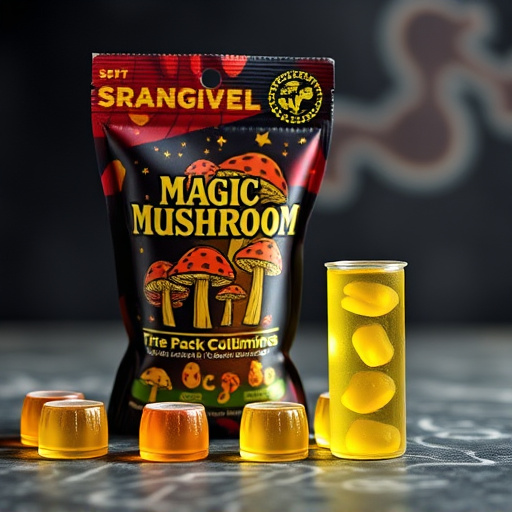
Magic Mushroom Gummies are a modern twist on traditional psilocybin-containing edibles, designed to offer a discrete and potentially less intense experience compared to their raw counterparts. These gummies often contain concentrated doses of psilocybin, the active compound found in magic mushrooms, encapsulated within a sweet, chewy treat. The effect of these gummies is similar to that of consuming regular magic mushrooms: they can induce altered perceptions, heightened creativity, spiritual insights, and a general sense of euphoria. However, unlike traditional mushrooms, gummy varieties often have controlled dosages, allowing users to manage their experience more precisely.
The mechanism behind the Magic Mushroom Gummies’ effectiveness lies in psilocybin’s interaction with the brain’s serotonin receptors. Serotonin plays a crucial role in regulating mood, appetite, and sleep. When psilocybin binds to these receptors, it can alter sensory perception, thought patterns, and emotional states, leading to the placebo effect. The placebo effect refers to the positive outcomes experienced by individuals who believe they are receiving an active treatment, even if it’s a sugar pill or, in this case, a gummy with no active substance. This phenomenon highlights the significant role of mind-body connection and the power of belief in determining the impact of any given substance.
Exploring the Placebo Effect and Its Impact on Perception
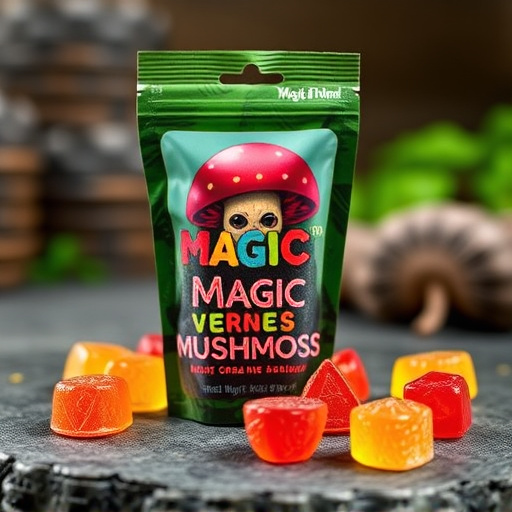
The power of the placebo effect cannot be understated, especially when considering its role in altering perceptions associated with magic mushroom gummies. This phenomenon occurs when an individual’s expectations or beliefs about a substance lead to a perceived change in their physical or mental state, even if the substance itself is inert or has no active ingredients. In the context of magic mushroom gummies, some users report intense psychological experiences, from heightened creativity and euphoria to profound insights and altered perceptions of time and space. These effects are often attributed to the placebo effect, where the user’s belief in the potency of the gummies influences their brain chemistry, leading to a subjective change in their sensory experience.
Understanding the placebo effect is crucial when reviewing magic mushroom gummies as it highlights the complex relationship between mind and matter. Research suggests that the human brain is remarkably susceptible to suggestions, which can be harnessed for therapeutic purposes but also requires careful consideration when interpreting personal accounts of these substances’ effects. By recognizing the influence of expectation on perception, users can approach magic mushroom gummies with a critical yet open mindset, differentiating genuine psychological benefits from those enhanced by the placebo effect.
User Reviews: Benefits, Side Effects, and Real-Life Experiences

User reviews on magic mushroom gummies offer a wealth of insights into their effects, benefits, and potential drawbacks. Many users report experiencing heightened senses, increased creativity, and profound emotional connections often described as mystical or spiritual. These experiences can lead to personal insights and a sense of well-being. Some even claim that magic mushroom gummies have helped them manage stress, anxiety, and depression, offering an alternative therapy for mental health issues.
However, it’s crucial to acknowledge the placebo effect as a significant factor in these reviews. The mind’s power to induce changes based on belief is powerful, and users may perceive benefits from the experience itself rather than any direct chemical interaction. Side effects are also reported, including temporary anxiety, paranoia, or disorientation, especially for first-time users. As with any substance, individual reactions vary, and it’s essential to approach magic mushroom gummies with caution and an understanding of their potential risks and rewards.
Magic Mushroom Gummies have sparked interest due to their unique blend of psychedelic compounds and edible form. Understanding the placebo effect is crucial in appreciating user reviews, as it can significantly influence perceptions of their benefits and side effects. While some users report profound spiritual experiences and therapeutic advantages, others may attribute minor improvements to the placebo response. Further research into these compounds and user education are essential to navigating the potential of Magic Mushroom Gummies, especially considering the power of the mind’s ability to alter perception.
